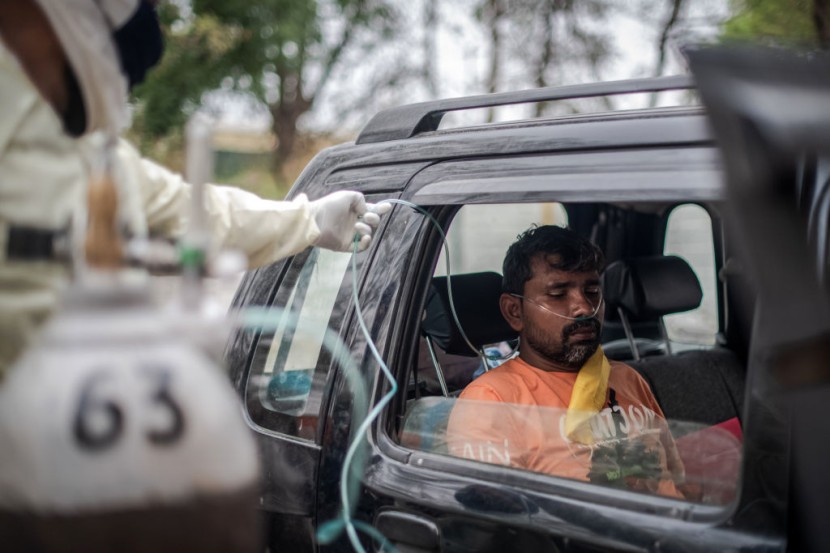
The US has sent several big military transport planes to India loaded with supplies, including critically-needed oxygen, for its deadly fight against COVID-19, said President Joe Biden's top security official. India is home to more than a third of the world's latest COVID-19 cases, and the grim count reached a new high on Saturday, with 401,993 cases reported after a 10-day run of more than 300,000 daily cases, US officials said on Sunday.
US sends COVID-19 aid as India reaches more than 400,000 cases
Overburdened hospitals are turning away infected patients as oxygen, and medication levels are running short. Crematoriums are burning the corpses of victims around the clock, filling the air with smoke, NY Daily News reported. National Security Adviser Jake Sullivan told ABC News' This Week With George Stephanopoulos that the US has sent India several military planes loaded with supplies, including oxygen, medicines, and vaccine raw materials.
He added that the US is still scouring global markets for additional supplies and enlisting foreign allies in the initiative. Sullivan said, "We're proud of what we've accomplished so far. We still hope we could drive quickly and do more in a situation of this magnitude and ferocity."
Experts warn that a large outbreak like India increases the risk of new variants being immune to existing vaccines. In the aftermath of India's COVID-19 crisis, a US Air Force aircraft carrying relief supplies from the US arrives at the Indira Gandhi International Airport cargo terminal in New Delhi, India, on Friday.
As of Tuesday, the United States has imposed travel restrictions on India, prohibiting most non-US nationals from entering the country. According to the Johns Hopkins University & Medicine Coronavirus Resource Center, more than 215,000 COVID deaths have occurred in India, a country with a population of more than 1.3 billion people trapped in a second wave of the pandemic.
Read Also: White House to Implement US Travel Restrictions from India, but Ban Unlikely to Stop COVID-19
The prohibitions will take effect after midnight on Tuesday, according to the presidential proclamation issued on Friday. Lawful permanent residents, families or children of US citizens and green card holders, parents or siblings of US citizens or green card holders under the age of 21, health care and aid personnel "traveling at the request of the United States Government," and some visa-holding officials, such as UN workers and aircrews, are all excluded. Exemptions have been extended to Indian students, educators, journalists, and others who provide vital infrastructure assistance in countries.
The restrictions were declared on the same day that some initial American support, including 1,100 refill oxygen tanks, 1,700 oxygen concentrators, and several large-scale oxygen generation units, arrived in New Delhi aboard a US Air Force C-17 cargo plane. The help was given to meet India's desperate need for oxygen-related supplies.
In addition, the United States is sending 20,000 doses of Remdesivir, an antiviral medication that is effective in the treatment of COVID-19. India has demanded various high-priority services, such as oxygen concentrators and ventilators, therapeutics and personal protective equipment, and testing materials.
Scott Gottlieb said he is "not sure" about Biden's travel ban in India
On Sunday, former FDA Commissioner Scott Gottlieb cast doubt on Biden's looming ban on travel to India as a means of avoiding the entry of COVID-19 variants in the US. "I'm not sure what we're trying to achieve. I assure you, if the aim is to avoid the arrival of the new variant 617 that's circulated in India, it's already here," Gottlieb said.
During an appearance on CBS News' "Face the Nation," Gottlieb said this is referred to as "convergent evolution." Because of the virus outbreak in India, the White House declared on Friday that most travel between the United States and India would be prohibited. As Business Insider's John Haltiwanger previously observed, the travel restriction contradicts Biden's previous comments regarding travel bans, which he once said would not stop the COVID-19.








